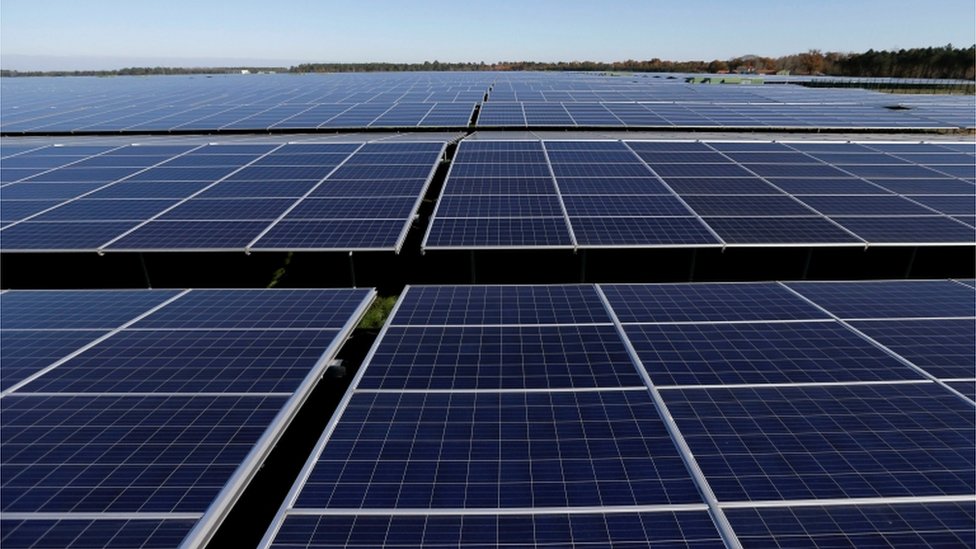INSUBCONTINENT EXCLUSIVE:
Image copyrightGetty ImagesImage caption
Officials say solar energy will more than pay for itself, and homeowners could
see significantly lower utilities costs per month
California has become the first US state to mandate solar panels on new
homes and apartment buildings built after 1 January, 2020.The California Energy Commission unanimously approved the plan, making it the
state's next big step towards ending greenhouse gas emissions.State law already requires that 50% of all electricity comes from non
carbon-emitting sources by 2030.The mandate still requires approval from the Building Standards Commission.Critics have been quick to note
homeowners will only see an additional $40 to monthly mortgage payments.At the same time, the commission said they will save $80 on heating,
cooling and lighting costs per month.The new mandate does offer exceptions where solar power is not feasible or cost effective, such as
homes located entirely under shade.Builders will have the option of adding solar panels to individual homes, or building shared power
systems for a group of homes.Current homeowners would not be required to add solar to existing homes, though many in the state have done so
using government rebate programmes.California has invested over $42m in solar energy to date, and the mandate will likely give a further
boost to the solar industry statewide.Image copyrightEPAImage caption
California has invested over $42m in solar energy
to date
The Solar Energy Industries Association (SEIA) already ranks California as the top state in the US when it comes to
solar energy.Nearly 16% of the state's electricity last year came from solar.Abby Hopper, SEIA president, said on Twitter that
California's mandate demonstrates "that promoting home solar makes sense".The California Building Industry Association has been working
with the Energy Commission on the new standards for the past decade, according to ABC News.The Building Standards Commission is expected to
make a decision later this year.Media captionHow Sharon turned her life aroundLynn Jurich, co-founder of solar installation company Sunrun,
told the New York Times that large market expansions like this make it "very cost effective to do"."There's also this real American sense
of freedom of producing electricity on my rooftop," Ms Jurich told the Times
"And it's another example of California leading the way."California is already ahead of schedule with its long-term energy goals: the
California Public Utilities Commission reported that they will likely meet the 2030 goal 10 years ahead of schedule.

